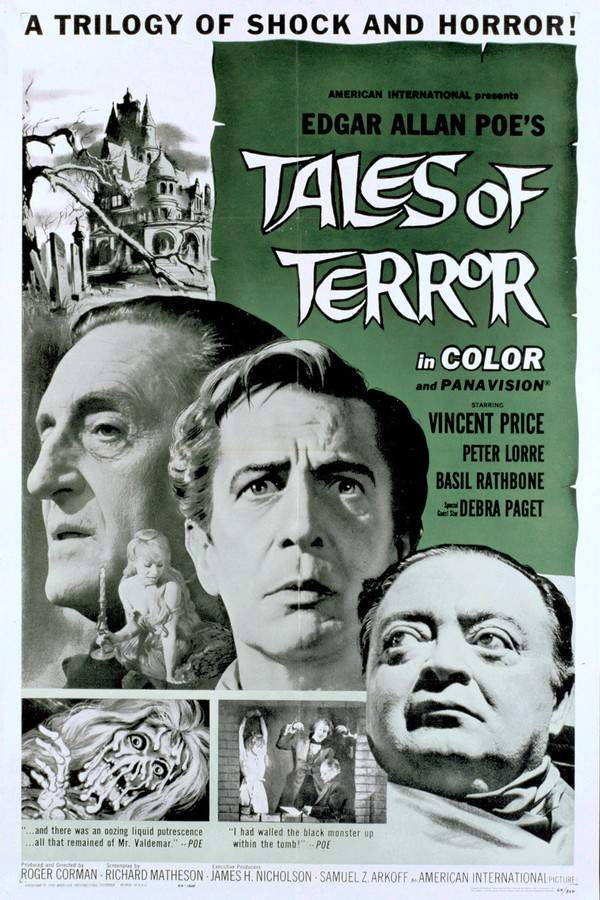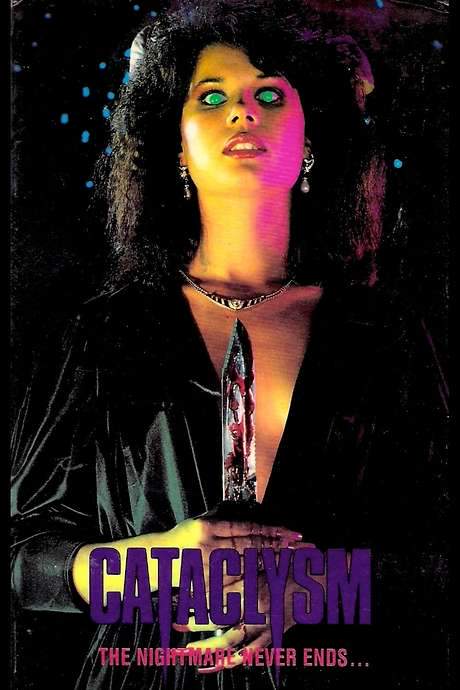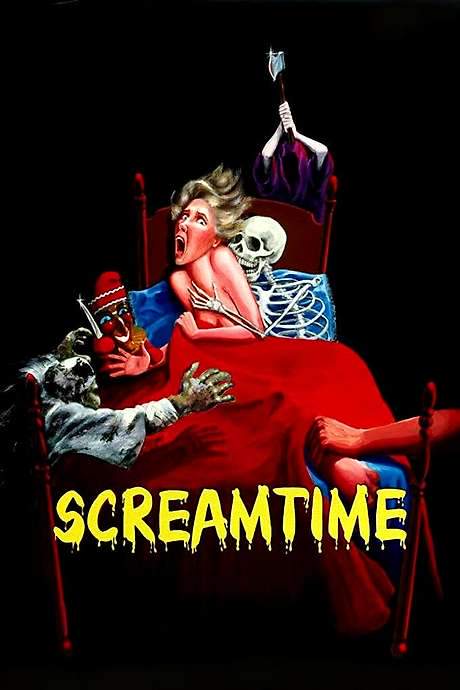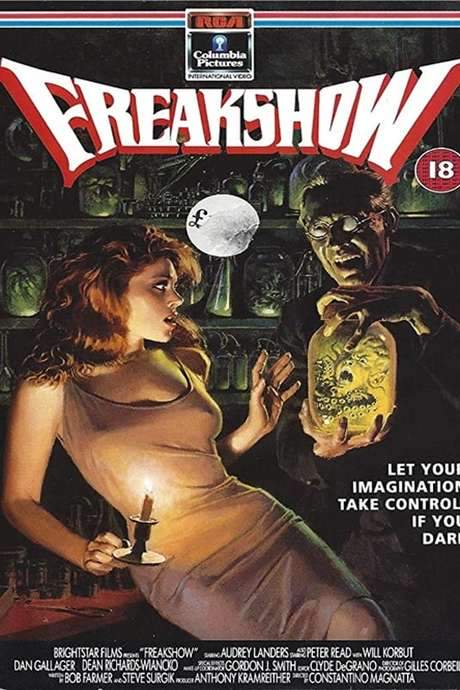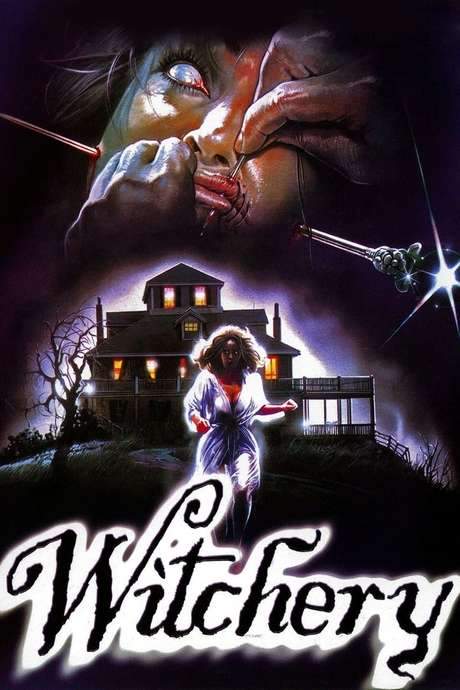Black Sabbath 1964
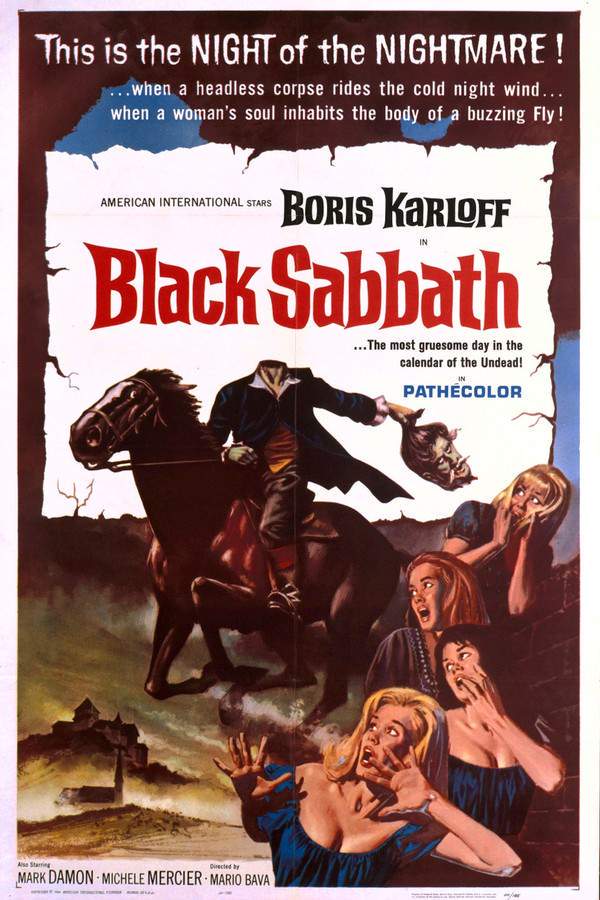
This eerie horror anthology presents three unsettling tales of terror, narrated by Boris Karloff. The first story explores the dark secrets of a haunted nurse, while the second follows a vulnerable call girl pursued by an unseen presence. Finally, a timeless curse is unleashed as a vampire relentlessly hunts his prey, creating a chilling and unforgettable experience.
Does Black Sabbath have end credit scenes?
No!
Black Sabbath does not have end credit scenes. You can leave when the credits roll.
Meet the Full Cast and Actors of Black Sabbath
Explore the complete cast of Black Sabbath, including both lead and supporting actors. Learn who plays each character, discover their past roles and achievements, and find out what makes this ensemble cast stand out in the world of film and television.
External Links and Streaming Options
Discover where to watch Black Sabbath online, including streaming platforms, rental options, and official sources. Compare reviews, ratings, and in-depth movie information across sites like IMDb, TMDb, Wikipedia or Rotten Tomatoes.
Ratings and Reviews for Black Sabbath
See how Black Sabbath is rated across major platforms like IMDb, Metacritic, and TMDb. Compare audience scores and critic reviews to understand where Black Sabbath stands among top-rated movies in its genre.

82
Metascore
8.5
User Score


89%
TOMATOMETER

75%
User Score

7.0 /10
IMDb Rating

72
%
User Score
Take the Ultimate Black Sabbath Movie Quiz
Challenge your knowledge of Black Sabbath with this fun and interactive movie quiz. Test yourself on key plot points, iconic characters, hidden details, and memorable moments to see how well you really know the film.
Black Sabbath (1964) Quiz: Test your knowledge of the eerie anthology film 'Black Sabbath' and its chilling tales of horror.
Who is the narrator of the film?
Boris Karloff
Vincent Price
Christopher Lee
Peter Cushing
Show hint
Full Plot Summary and Ending Explained for Black Sabbath
Read the complete plot summary of Black Sabbath, including all major events, twists, and the full ending explained in detail. Explore key characters, themes, hidden meanings, and everything you need to understand the story from beginning to end.
Note: This synopsis pertains to the original Italian release, highlighting the segments in a specific order.
In Three Faces of Fear, introduced by the iconic Boris Karloff, three chilling tales unfold, each steeped in horror and the supernatural.
THE TELEPHONE
In the heart of Paris, Rosy, portrayed by Michèle Mercier, is a captivating and high-priced call-girl. After a night out, she returns to her spacious basement apartment only to be haunted by unsettling phone calls. The caller, Frank—her ex-pimp—has recently escaped from prison, and Rosy is terrified, knowing that her testimony put him behind bars. Seeking comfort, she reaches out to her estranged lover Mary, played by Lidia Alfonsi. Despite their distance, Rosy believes Mary is her only help. Mary agrees to come over, yet unbeknownst to Rosy, it’s actually Mary impersonating Frank in a twisted game. Upon Mary’s arrival, she attempts to soothe Rosy’s anxieties with a tranquillizer, lulling her to sleep.
As the night deepens, Mary confesses in writing that she made the ominous calls to reinsert herself into Rosy’s life. However, during her moment of reflection, a true threat materializes—Frank enters, and in a horrific turn, he strangles Mary. Awakened by the commotion, Rosy finds herself cornered, but she is not defenseless. Armed with a butcher knife stowed beneath her pillow, she strikes back, plunging the knife into Frank as he attempts to overpower her. The scene culminates in a harrowing display of desperation: surrounded by the lifeless bodies of her lovers, Rosy succumbs to hysteria.
THE WURDALAK
Set in 19th Century Russia, a young nobleman, Vladimir D’Urfe, discovers a sinister beheaded corpse during his travels, along with a knife imbedded deep in its heart. He takes this artifact as a memento. Seeking shelter for the night, he arrives at a rustic cottage owned by Giorgio, played by Glauco Onorato, who introduces him to his family eagerly waiting for their missing patriarch, Gorcha, which the family fears has become a wurdalak—a type of undead that feeds on its loved ones.
As the clock strikes midnight, Gorcha, portrayed by Boris Karloff, returns, casting a foreboding shadow over the household. It becomes a grim contest between his monstrous nature and the familial bonds of love that threaten to hold them back from necessary sacrifice. Tragedy ensues as Gorcha attacks the family, leading to horrifying consequences that will forever change their lives. When Sdenka, a family member, lured by her connections, succumbs to Gorcha’s influence, her relationship with Vladimir spirals into chaos, instigating a series of tragic decisions that culminate in a cycle of horror.
THE DROP OF WATER
In Victorian London, Nurse Helen Chester, played by Jacqueline Pierreux, is summoned to prepare the body of a deceased medium. Struck by greed, she steals an ornate diamond ring from the corpse. Once back in her modest residence, Helen is plagued by a relentless fly and the unsettling sound of dripping water that pushes her towards madness.
Her guilt regarding the theft seemingly manifests in terrifying visions, including the horrific return of the medium’s ghost. In a dreadful climax, Helen’s actions lead her to choke herself in fear, seemingly at the ghost’s beckoning. The following day, her lifeless body is discovered, raising questions about the true nature of her demise. The pathologist’s grim observation hints at a more sinister fate, exacerbated by the relentless fly that continues to haunt the scene.
As the chilling narrative draws to a close, Boris Karloff appears once more, delivering a poignant caution against the darker forces that lurk in the night, as the screen pulls back to reveal the theatricality behind this terrifying ordeal.
Uncover the Details: Timeline, Characters, Themes, and Beyond!

Coming soon on iOS and Android
The Plot Explained Mobile App
From blockbusters to hidden gems — dive into movie stories anytime, anywhere. Save your favorites, discover plots faster, and never miss a twist again.
Sign up to be the first to know when we launch. Your email stays private — always.
Watch Trailers, Clips & Behind-the-Scenes for Black Sabbath
Watch official trailers, exclusive clips, cast interviews, and behind-the-scenes footage from Black Sabbath. Dive deeper into the making of the film, its standout moments, and key production insights.
Black Sabbath Themes and Keywords
Discover the central themes, ideas, and keywords that define the movie’s story, tone, and message. Analyze the film’s deeper meanings, genre influences, and recurring concepts.
Black Sabbath Other Names and Titles
Explore the various alternative titles, translations, and other names used for Black Sabbath across different regions and languages. Understand how the film is marketed and recognized worldwide.
Similar Movies To Black Sabbath You Should Know About
Browse a curated list of movies similar in genre, tone, characters, or story structure. Discover new titles like the one you're watching, perfect for fans of related plots, vibes, or cinematic styles.
Quick Links: Summary, Cast, Ratings, More

What's After the Movie?
Not sure whether to stay after the credits? Find out!
Explore Our Movie Platform
New Movie Releases (2026)
Famous Movie Actors
Top Film Production Studios
Movie Plot Summaries & Endings
Major Movie Awards & Winners
Best Concert Films & Music Documentaries
Movie Collections and Curated Lists
© 2026 What's After the Movie. All rights reserved.















